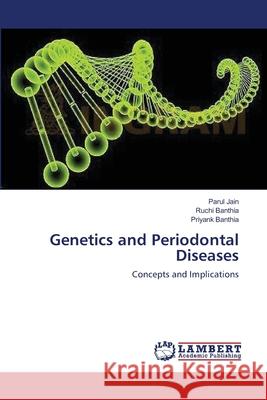Genetics and Periodontal Diseases » książka
Genetics and Periodontal Diseases
ISBN-13: 9783659200823 / Angielski / Miękka / 2012 / 168 str.
Microorganisms are essential but not sufficient to cause periodontal disease which is multifactorial. It occurs due to the interplay of many factors, primarily microorganisms and host response. Recent technological breakthroughs have brought about a better understanding of many disease processess which highlight the role of genetic influences on their pathophysiology. The role of genes in modifying the host response and hence predisposition to and progression of periodontal diseases has been validated by recent research. The association of periodontal and systemic diseases can be better understood in the light of genetics. Unravelling the genetic basis of periodontal disease may also help in prompt diagnosis and effective management of the same. This manuscript compiles various aspects of genetic variations and their effect on periodontal diseases which could then potentially be employed to counter the scourge of periodontal disease.
Microorganisms are essential but not sufficient to cause periodontal disease which is multifactorial. It occurs due to the interplay of many factors, primarily microorganisms and host response. Recent technological breakthroughs have brought about a better understanding of many disease processess which highlight the role of genetic influences on their pathophysiology. The role of genes in modifying the host response and hence predisposition to and progression of periodontal diseases has been validated by recent research. The association of periodontal and systemic diseases can be better understood in the light of genetics. Unravelling the genetic basis of periodontal disease may also help in prompt diagnosis and effective management of the same. This manuscript compiles various aspects of genetic variations and their effect on periodontal diseases which could then potentially be employed to counter the scourge of periodontal disease.











